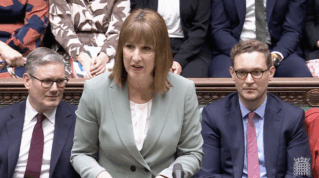This party conference season has firmly placed the spotlight on colleges and apprenticeship training providers. Both Labour and the Conservatives have said they will prioritise technical education as we head into the general election.
The significance of this damascene conversion is not lost on those working in the sector, who have had well over a decade of feeling under-appreciated. While this new focus is to be welcomed, it begs the question: “Why now?”
Apart from the obvious need to fill the massive skills gaps in the economy, which cause productivity to flag and hamper growth, the striking answer is that prioritising vocational education and training is massively popular with the electorate.
A report by Public First for Progressive Britain, charged with finding out voters’ views on how to pay for university, uncovered resounding support for colleges and apprenticeships.
Conducted without the initial intention of comparing support for FE versus HE, our research discovered an overwhelming, untapped public endorsement for increased investment in FE.
The findings, drawn from a huge nationally representative poll of 8,000 people and focus group discussions with parents in key constituencies, underscored remarkably high levels of support for vocational training, particularly in the form of apprenticeships. Participants expressed a palpable frustration over politicians’ disproportionate emphasis on higher education.
In the polling data, vocational options such as expanding apprenticeships for 18-year-olds (48 per cent) and allocating more funding for training courses for working-age adults (34 per cent) emerged as significantly more popular than other tertiary education policies, including restoring maintenance grants for university students and lowering tuition fees.
In broader terms, the research suggests that facilitating greater access to apprenticeships and college courses would be positively received by a substantial portion of the population. Importantly for the Labour Party, this approach resonates well with key voter groups.
Importantly for Labour, this approach resonates well with key voter groups.
The data showed that 52 per cent of individuals who voted Conservative in 2019 and are now leaning towards Labour consider apprenticeships a priority for over-18 education funding. Moreover, 59 per cent of those who were Conservative voters in 2019 and are currently undecided also prioritise apprenticeships.
In a notable trade-off, more than two-thirds (67 per cent) of the public voiced the opinion that there is a need for more people to go to college to acquire vocational skills, as opposed to only 20 per cent advocating for increased university enrolment. Among Labour voters, 60 per cent held this view, but among those who have switched allegiance from the Conservatives, a substantial 72 per cent shared the sentiment. Even among those Conservatives currently uncertain about their vote, a striking 80 per cent expressed the need to focus more on colleges.
The qualitative data from focus groups further underscored widespread support for apprenticeships. Discussions on boosting the number of apprenticeships emerged in every single focus group, with particular prominence in groups comprised of the least well-off parents. The enthusiasm for apprenticeships was largely fuelled by a collective aversion to the prospect of long-term debt and the overall cost associated with higher education.
One father of a secondary school pupil in Wycombe provided an oft-repeated narrative around going to university, “the thought of just coming out of higher education with a giant debt, when you can actually go and get the same qualifications and get paid and make progress in a company at the same time.”
Apprenticeships were perceived as a more economically viable option, offering an equivalent quality of education and promising career prospects without the financial burden.
While there is undoubtedly widespread support for higher education, both in principle and practice, our research brings a significantly higher level of public endorsement for further education and apprenticeships than politicians currently acknowledge.
The call to action is clear: There is a high level of public support for politicians who champion FE, apprenticeships, and training opportunities, driven by a real enthusiasm for practical, skills-oriented education across society.

















Your thoughts